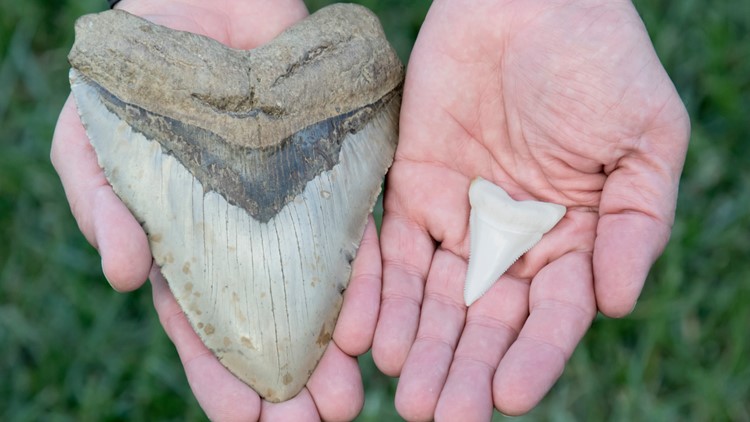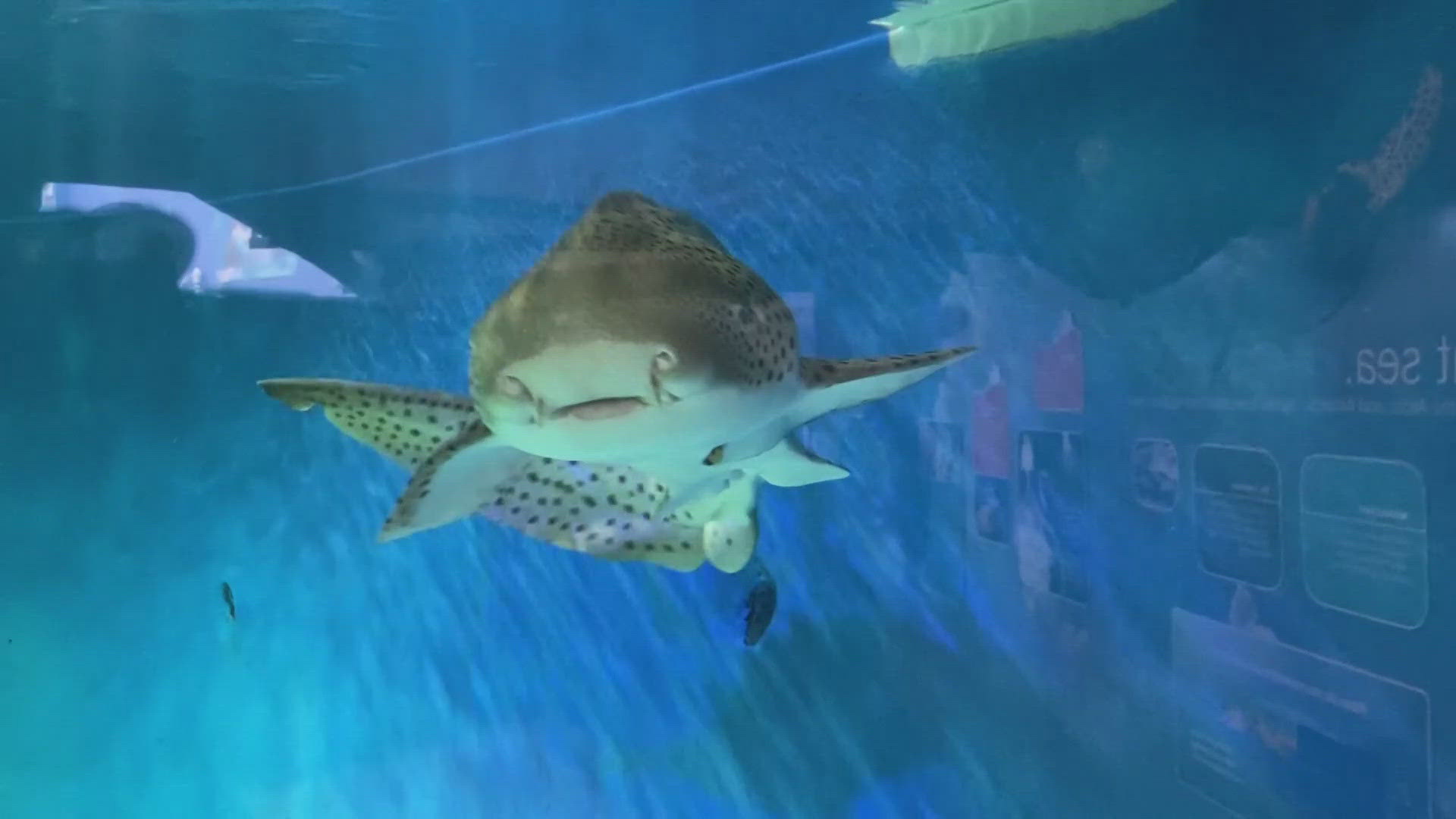ST. PETERSBURG, Fla. — When you think of the largest predator to exist in the blue waters, you might go to a great white shark or an Orca whale — but do you remember hearing about a megalodon?
As one of the largest predators to ever live, why are they not around swimming in the oceans anymore? Well, great white sharks might have something to do with it, a new study shows.
The two shark species coexisted for many years, likely sharing the same prey, CNN explains.
Researchers were able to see the role great white sharks played in the extinction of megalodons by analyzing dietary signatures in the teeth of 13 different extinct shark species and 20 modern sharks, the media outlet says. They did this to understand where exactly they fit in the food chain.
"The megalodon co-existed with the great white shark during the time frame called the early Pliocene, and our zinc data suggest that they seem to have indeed occupied the same position in the food chain," co-author of the study and paleobiologist Kenshu Shimada of DePaul University in Chicago said.
Now how exactly does zinc data bring the researchers to a conclusion? The zinc content in the teeth of the sharks indicates the megalodon may have been out-competed when it comes to prey, Reuters explains.
The team of researchers reportedly assessed the ratio of two forms of the mineral zinc in the outer part layer of shark teeth. The ratio helped them find answers to the sharks' diets and their position on the marine food chain.
And what they found basically shows bigger isn't always better! Megalodons, which appeared around 15 million years ago, went extinct after only 1.7 million years of great white sharks existence.
"There have been multiple hypotheses as to why megalodon went extinct. Traditional hypotheses have attributed this to climate change and the decline in food sources," Shimada explained. "However, a recently proposed hypothesis contends that megalodon lost the competition with the newly evolved great white shark."
"Our new study appears to support this proposition," he added. "It is also entirely possible that a combination of multiple factors may have been at play."
And no — researchers don't believe great white sharks ate their larger friends. We know everyone was questioning it.
Anyone interested in reading the full study can click here.



